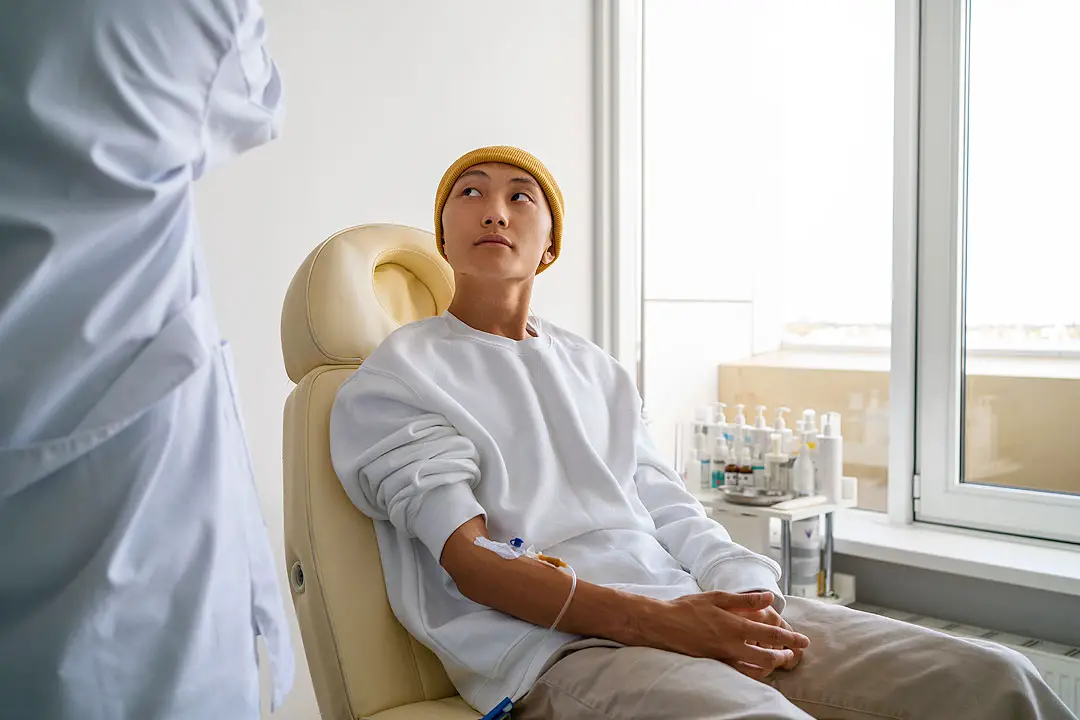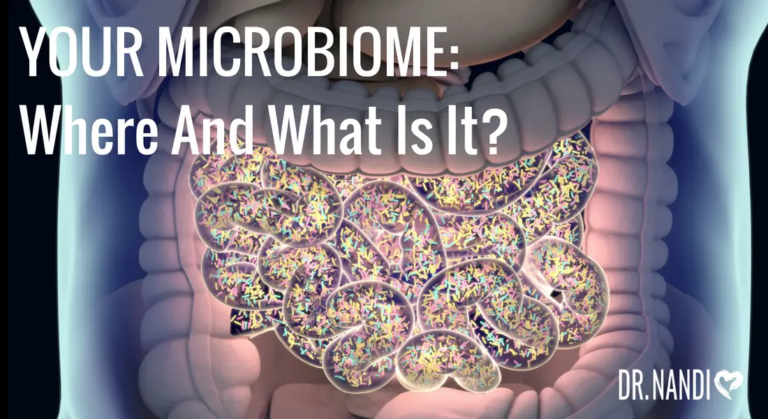In a world where medical breakthroughs and advancements are rapidly expanding, the rise of early-onset cancer among young adults remains an alarming concern. Picture this: a generation that should be brimming with youthful vigor is facing an unexpected adversary in the form of cancer.
In the past few years, an unsettling trend has emerged in cancer diagnosis: a surge in early-onset cancer cases among young adults.
Tale of a Young Woman’s Fight Against Early-Onset Cancer
Meet Vanessa Chapoy, a brave young woman who, at the age of 24, discovered a lump in her breast the size of a walnut. Little did she know that this innocent-looking lump would lead to a life-altering stage 2 breast cancer diagnosis. [1]
Vanessa’s life took an unexpected turn as she began her courageous battle against cancer. Her journey was filled with a series of daunting treatments, such as lumpectomy, fertility treatments, chemotherapy, and a double mastectomy. Each step was a challenging and emotional experience, but Vanessa faced it all with unwavering strength and determination.
Vanessa, now 27, is still battling the after-effects of her treatments. As a result of her cancer journey, she experiences early menopause-like symptoms due to hormone therapy, and she struggles with chemo brain, a cognitive impairment following chemotherapy.
Unfortunately, Vanessa’s story is not unique; it reflects a growing trend in our health landscape: the rise of early-onset cancer.
The Startling Statistics: Early-Onset Cancer on the Rise
Cancer has long been considered a disease primarily affecting older adults, with most cancer patients being diagnosed at age 65 or older. However, recent years have witnessed a concerning rise in early-onset cancer cases affecting individuals under the age of 50.
Even more alarming is the surge in early-onset cancer cases among adolescents and young adults aged 15 to 39. Data from the US National Cancer Institute (NCI) indicates an 18% increase in early-onset cancer cases between 2000 and 2019, overshadowing the slight decline in cancer rates among older adults. [2]
This rise is not limited by gender, race, or specific organs; it has impacted various systems of the body, including the blood, bone marrow, gastrointestinal tract, and reproductive organs. For instance, breast cancer rates among young adults aged 15-39 have increased by more than 17% in the span of 19 years, while colorectal cancer rates have skyrocketed by nearly 45%. [3]

Why Early-Onset Cancer Occurs
Identifying the exact causes of the rise in early-onset cancer remains a complex challenge for researchers. Some suggest that enhanced screening techniques leading to increased rates of early detection and overdiagnosis might contribute to part of the increase, particularly in thyroid and prostate cancers. Overdiagnosis occurs when screenings detect tumors that might never have caused harm, thus artificially inflating cancer rates.
However, several environmental and lifestyle changes since the mid-20th century could have potentially contributed to the escalation, which includes the following factors:
1. Obesity and Lifestyle Changes
Obesity rates have been on a steady climb among children and adolescents since the 1960s. This is crucial because it is linked to numerous cancers, such as breast, uterine, and colorectal cancers. Studies suggest the dramatic increase in obesity-related cancers may contribute significantly to early-onset cancer cases. [4]
2. Westernized Diets and Sedentary Lifestyles
Unhealthy eating habits, high consumption of sugar-sweetened beverages, processed meats, and decreased physical activity have all been associated with an increased risk of cancer. [5]
3. Metabolic Conditions and Other Risk Factors
Conditions like type 2 diabetes, the increased use of cannabis, as well as the rising use of diagnostic imaging exposing patients to carcinogenic radiation, have been implicated as contributing factors in early-onset cancer cases. [6]
4. Genetic and Environmental Triggers
Changes in height, sleep patterns, and the body’s microbiome have also been considered as potential contributors to early-onset cancer. Research indicates that alterations in the microbiome due to dietary habits, lifestyle changes, or surgical procedures may play a part in early-onset colorectal cancer. [7]

Preventive Measures and Identifying Symptoms
Early detection and preventive measures are essential in curbing the rise of early-onset cancer cases. Here are some strategies to consider:
1. Unexplained weight loss: Sudden and unintentional weight loss without any changes in diet or exercise could be a sign of cancer. If you experience unexplained weight loss, consider a medical evaluation.
2. Fatigue and weakness: Persistent fatigue and weakness that doesn’t improve with rest may be a symptom of cancer. Reach out to your doctor if your fatigue is having a considerable impact on your daily life.
3. Changes in the skin: Unusual changes in the size, shape, or color of moles or skin lesions could indicate skin cancer. Use sunscreen, wear protective clothing, and avoid prolonged exposure to direct sunlight to reduce the risk of skin-related cancer.
4. Changes in bowel or bladder habits: Persistent changes in bowel movements or urination, such as blood in the stool or urine, should not be ignored.
5. Family History: If there is a history of cancer in your family, inform your healthcare provider, as it may increase your risk.

My Personal RX to Combat Early-Onset Cancer
As a doctor, my primary goal is to promote health and prevent illness. By emphasizing the significance of cancer prevention, I hope to empower my patients to take charge of their health and make informed choices that can reduce their risk of cancer.
- Adopt a Healthy Diet: Focus on a diet rich in fruits, vegetables, whole grains, and lean proteins. These foods contain essential nutrients and antioxidants that help protect cells from damage.
- Incorporate Omega-3 Fish Oil: Supplementing your diet with Omega-3 Fish Oil can be beneficial. Omega-3 fatty acids have been shown to reduce inflammation in the body, which can help lower the risk of certain types of cancer.
- Maintain a Regular Exercise Routine: Regular physical activity helps maintain a healthy weight, reduces inflammation, and improves immune function, all of which can help reduce cancer risk.
- Avoid Tobacco and Limit Alcohol: Smoking and excessive alcohol consumption are significant risk factors for many types of cancer. Avoiding tobacco and limiting alcohol intake are crucial steps in cancer prevention.
- Minimize Exposure to Environmental Toxins: Be aware of carcinogens in your environment, such as certain chemicals in plastics, pesticides, and air pollution. Take steps to minimize your exposure by choosing safer products and living in healthier environments.
- Follow the Protocol for Holistic Health: Utilize the comprehensive guidelines provided in my comprehensive 50-page Protocol ebook, which offers advice on diet, exercise, and lifestyle choices that support overall health and cancer prevention.
- Regular Medical Screenings: Stay on top of health screenings appropriate for your age and family history. Early detection of cancer significantly increases the chances of successful treatment.
- Manage Stress Effectively: Chronic stress can affect your body’s immune system and increase your risk of cancer. Incorporate stress management techniques such as meditation, yoga, or deep breathing exercises into your daily routine.
By being mindful of potential symptoms and incorporating healthy lifestyle practices, we can take steps towards a future where early-onset cancer is rare. Awareness, research, and support are key to reversing this troubling health landscape and ensuring young adults receive the best care and support on their cancer journey.
Sources:
- Directory for Women of Color Affected by Breast Cancer. (n.d.). For The Breast of Us. https://www.breastofus.com/breast-cancer-baddie-directory/entry/1039/?gvid=2033
- Cancer of any site – Cancer Stat Facts. (n.d.). SEER. https://seer.cancer.gov/statfacts/html/all.html
- Di Martino, E., Smith, L., Bradley, S. H., Hemphill, S., Wright, J., Renzi, C., Bergin, R., Emery, J., & Neal, R. D. (2022). Incidence trends for twelve cancers in younger adults—a rapid review. British Journal of Cancer, 126(10), 1374–1386. https://doi.org/10.1038/s41416-022-01704-x
- Products – Health e Stats – Prevalence of overweight, obesity, and extreme obesity among adults aged 20 and over: United States, 1960–1962 through 2017–2018. (n.d.). https://www.cdc.gov/nchs/data/hestat/obesity-adult-17-18/obesity-adult.htm
- Anand, P., Kunnumakara, A. B., Sundaram, C., Harikumar, K. B., Tharakan, S. T., Lai, O. S., Sung, B., & Aggarwal, B. B. (2008). Cancer is a Preventable Disease that Requires Major Lifestyle Changes. Pharmaceutical Research, 25(9), 2097–2116. https://doi.org/10.1007/s11095-008-9661-9
- Risk factors: radiation. (2019, March 7). National Cancer Institute. https://www.cancer.gov/about-cancer/causes-prevention/risk/radiation
- Giannakis, M., Mu, X. J., Shukla, S. A., Qian, Z. R., Cohen, O., Nishihara, R., Bahl, S., Cao, Y., Amin-Mansour, A., Yamauchi, M., Sukawa, Y., Stewart, C., Rosenberg, M., Mima, K., Inamura, K., Nosho, K., Nowak, J. A., Lawrence, M. S., Giovannucci, E., . . . Garraway, L. A. (2016). Genomic correlates of Immune-Cell infiltrates in colorectal carcinoma. Cell Reports, 15(4), 857–865. https://doi.org/10.1016/j.celrep.2016.03.075





















